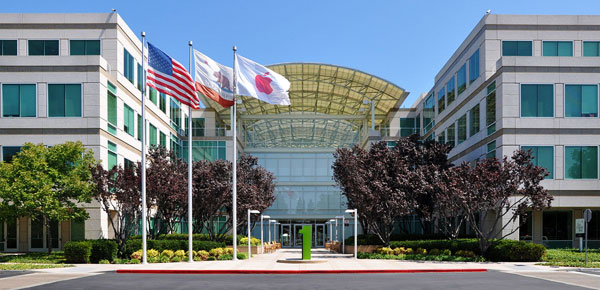Apple’s plans to open a number of healthcare centers for its employees surfaced this week.
Called the “AC Wellness Network,” the centers will offer “a unique concierge-like healthcare experience for employees and their dependents,” according to a website Apple set up for the initiative.
Apple revealed more details about its healthcare venture at the Glassdoor job website.
“AC Wellness is an independent medical practice exclusively dedicated to delivering Passionate, Compassionate, and Effective Healthcare to Apple employees and their families … in multiple stunning, state of the art Wellness Centers,” reads the post.
“We believe in Trusting, Accessible Relationships with our patients, enabled by beautiful and seamless technological experiences,” it continues. “We foster an environment of continuous learning and teamwork, which ultimately enables exceptional health outcomes.”
Apple did not respond to our request to comment for this story.
In Amazon’s Footsteps
News of Apple’s healthcare plans follows last month’s joint announcement from Amazon, Berkshire Hathaway and JP Morgan of a plan to provide healthcare services for their employees.
“The ballooning costs of healthcare act as a hungry tapeworm on the American economy,” Berkshire Hathaway CEO Warren Buffett said when announcing the venture.
“Our group does not come to this problem with answers,” he continued, “but we also do not accept it as inevitable. Rather, we share the belief that putting our collective resources behind the country’s best talent can, in time, check the rise in health costs while concurrently enhancing patient satisfaction and outcomes.”
Although both the Apple and Amazon announcements have a high-tech flavor, the companies’ goals likely aren’t limited to a single industry.
“It’s part of a larger trend in terms of companies trying to find ways to bring down healthcare costs,” said Michael Cannon, director of health policy studies at the Cato Institute.
Healthcare “is now one of the largest line items for most companies,” he told TechNewsWorld.
Ripple Effect
Depending on their performance, the Apple and Amazon programs’ ripple effect could be felt especially in the tech industry, noted Charles King, principal analyst at Pund-IT.
“They could spark similar programs, but it mostly depends on the size of the vendor,” he told TechNewsWorld.
“That’s because driving the kind of value Apple, Amazon and Berkshire are talking abut requires considerable scale in order to justify initial investments and negotiate beneficial deals with third parties, including hospitals and pharmaceutical players,” King explained.
“All three of the companies have tens of thousands of employees, as do other large scale IT vendors, like HP, IBM and Intel, so this could spark a trend among big tech companies,” he said.
There’s also the possibility that Apple and Amazon could develop superior models that could be used as the basis of new healthcare entities that would offer their services to other companies, King suggested.
Healthcare Perk
If Apple were to expand AC Wellness beyond its employees, it would be competing in markets that already have a number of effective commercial providers, King pointed out.
“Apple will either need to deliver demonstrably better care and service than what’s already available, or make it available at a steep discount compared to other alternatives,” he said. “Neither of those scenarios seems likely, at least in Silicon Valley.”
However, Apple may not have such grand designs for AC Wellness.
“Tech companies have always spent lavishly on their employees for perks,” observed Jack E. Gold, principal analyst at J.Gold Associates, “so this healthcare thing is a way to add to those perks.”
There are also potential benefits to Apple from AC Wellness.
“If employees are healthier, they’ll get sick less and stay home less,” Gold pointed out, “and if they’re healthier, Apple’s health insurance costs will go down.”
Let Experiments Bloom
Another benefit both Apple and Amazon may reap from providing healthcare is the opportunity to collect data.
“That data could eventually make its way into some of their products,” Gold said.
It could help the companies design better ways to deliver healthcare and keep people healthy.
“If they prove they can do the job better than conventional healthcare experts, it could introduce real change and competition into employer-provided healthcare markets,” King noted.
“That won’t fix every problem, but it could shake things up considerably,” he remarked.
“At the moment, there are no answers anywhere in the world in terms of controlling healthcare costs while increasing access,” Cato’s Cannon added.
“What we need to do is find ways to provide more services for lower cost,” he said. “We don’t have the answer to that yet, so why not let experiments like this bloom?”























































